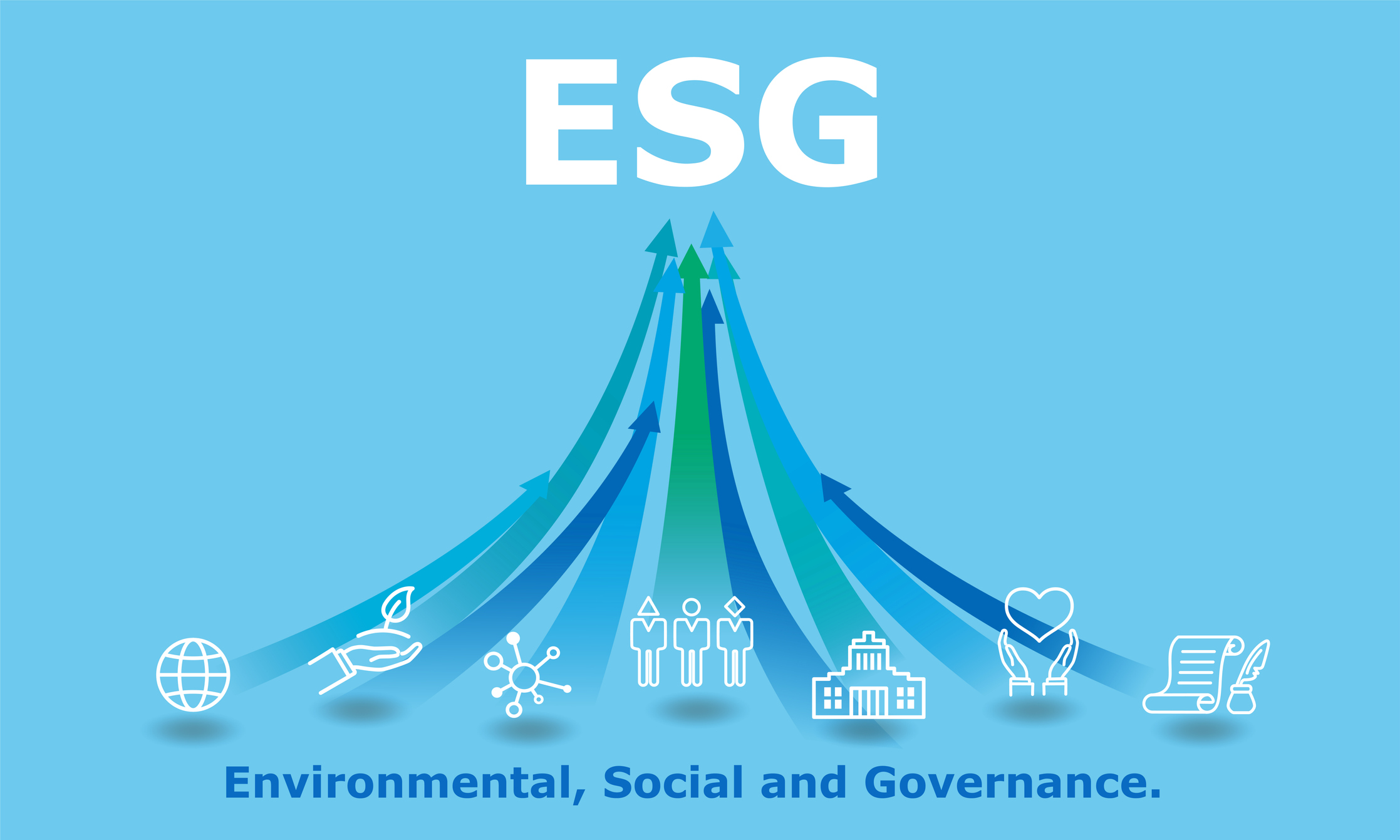
Without a doubt, history will look back upon 2020-2021 as the turning point for an unprecedented shift in the lives and priorities of the entire world’s population, fueled by three major crises: a global pandemic that fundamentally changed every aspect of our daily lives and transformed everything we thought we knew; the inevitable economic instability that followed; and the catastrophic effects of climate change, from devastating wildfires and storms to radical shifts in local weather patterns.
Everything changed. EVERYTHING. And during that change a socially conscious investing style, ESG investing, emerged as a way to move forward in a meaningful way, outperforming other more traditional investing strategies.
What Exactly is ESG Investing?
ESG investing is a strategy that prioritizes financial returns while also taking into account a company’s impact on the environment, social issues, and corporate governance. Third-party organizations rate companies and investments in these three categories, allowing you to identify potential investments in organizations that are using ethical business practices to seek solutions to the challenges we face in the world today.
E = Environmental
In 2021, we watched a hurricane strike from the Gulf Coast to the Northeast causing widespread damage and destruction – New York subways flooded, tornadoes in New Jersey, New Orleans underwater again. We saw Texas freeze to the point of shutting down the state’s power grid, suffering record-shattering subzero temperatures and blizzards across the state. California has been on fire for years now, it seems. Climate change is undeniable, and it factors heavily into the analysis of a company’s impact on the environment in ways such as, but not limited to:
- Carbon emissions and climate change
- Deforestation
- Pollution
- Water scarcity
- Conservation and biodiversity
- Green energy initiatives
S = Social
From widespread staffing shortages and the ongoing public discussion of a living wage to ethical supply chains and human rights protection, the news is full of topics relating to the social component of an ESG score. The impact a company has on its employees as well as the community at large includes such topics as:
- Fair labor practices
- Employee gender and racial diversity
- Inclusion programs and hiring practices
- Employee compensation and turnover
- Human rights at home and abroad
- Company safety and sexual harassment policies
- Customer satisfaction and consumer protection
- Policies concerning social justice issues
- Ethical supply chain sourcing
G = Governance
When rating the governance portion of an ESG score, analysts look at issues involving the company’s board and management are analyzed, including:
- Diversity of board members
- Executive compensation
- Policies regarding ethical business practices
- Leadership effectiveness
- Political contributions
- Lobbying
- Large-scale lawsuits and internal corruption
- How executive leadership interacts with shareholders
ESG Scores: How Are They Determined?
ESG investing relies on independent, third-party research firms to produce ratings that help you assess and compare companies’ performance and policies when it comes to environmental impact, social issues and corporate governance. However, there are no set standards or guidelines for these scores currently, so these ratings should only serve as a starting point when searching for an investment that aligns with your personal values.
A financial advisor with experience in socially responsible investing can help you make decisions that will put your investments to work making the world a better place.
Benefits of ESG Investing
According to Motley Fool: Socially conscious investing is on the rise. Investors are increasingly aware that they can use their money to effect positive change — and without sacrificing financial returns. Companies, too, are recognizing the many advantages of good corporate citizenship. It’s a win for everyone involved.
Higher Returns and Lower Risk
Morgan Stanley’s Sustainable Reality Report (April 2021) revealed that U.S. sustainable investing funds outperformed traditional funds and reduced investment risk throughout 2020. They outperformed traditional peer funds by a median of 4.3 percentage points, the largest performance difference recorded since 2004. And that’s during a time of severe market volatility during a global pandemic.
A 2019 Morgan Stanley Institute for Sustainable Investing white paper found that sustainable funds consistently showed a lower downside risk than traditional funds, regardless of asset class. The study found that during turbulent markets, such as in 2008, 2009, 2015 and 2018, traditional funds had significantly larger downside deviation than sustainable funds, meaning traditional funds had a higher potential for loss. (NerdWallet)
With potentially higher returns, lower risk, and the power to do good in the world with your investments, the benefits of ESG investing are clear.

Is ESG Investing Right for You?
ESG investing presents an opportunity for individuals to utilize their wealth as a catalyst for positive change in the world. Personal investment choices can have a far-reaching impact beyond financial returns. ESG investing could be an important part of your portfolio if you are looking to align your investments with your personal ethics and values through supporting companies with sustainable business practices like the ones described above.
Profit and personal values can coexist. ESG investing takes into consideration more than the performance of an investment. Just as you’d spend your money supporting small businesses, minority-owned businesses, or even donating to a charity that aligns with your belief system, you can also do the same with your portfolio. Many individuals care just as much about what they’re investing in and how the returns are achieved, as they do about the returns themselves. If you’re interested in aligning your investments with your personal convictions, look to work with a financial professional who grasps the importance of aligning your entire financial picture with those values.
How California Wealth Transitions Approaches ESG Investing
We’ve spent decades building the customized process we use to help you make decisions about major financial transitions. We know the questions to ask, the steps to take, and the potential challenges you’ll face – and we’ll be with you every step of the way. We will identify ways your personal values could be used to shape an ESG strategy that makes sense with your overall financial situation, taking into account your short and long term goals, risk tolerance, and timeline. If you’re ready to explore socially responsible investing and creating a lasting impact, talk to one of our advisors today.





